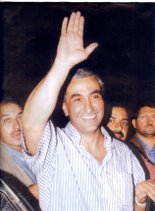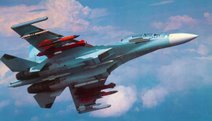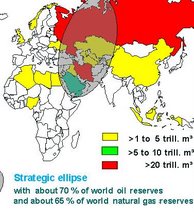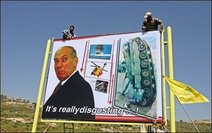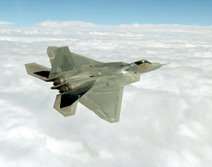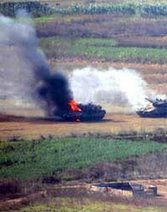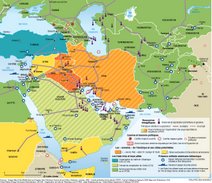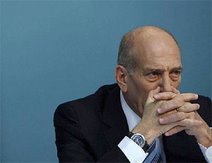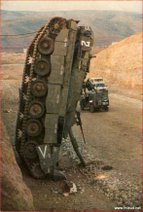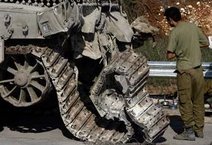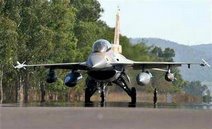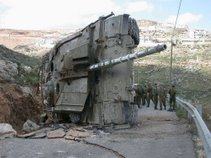
McCain says US "succeeding" in Iraq ...
After powerful political and media voices in America began expressing doubts about the war on terror, disaffection with U.S. intervention soon came to seem as if it were a permanent feature of our political landscape. Even as it is widely admitted that "the surge" has worked in Iraq, commentators remain wedded to the trope of Iraq as Vietnam. But that comparison is weak. Without a military draft, there has been no disorderly mass opposition to the Iraq war in this country. More important, Iraq itself has nothing in common with Vietnam. The latter country was a marginal element in the Communist world, with a language and culture limited to its own people, used as an anti-American proxy by China, and then by Russia. Iraq is neither marginal nor culturally isolated.
Iraq is, rather, a central Islamic country; a keystone with the potential for influencing its powerful neighbors, Saudi Arabia and Iran. It shares a common Arab language and tribal traditions with the former, and the Shia interpretation of Islam with the latter.
Defenders of the intervention, concerned that proponents of retreat would abandon Iraq, have drawn more appropriate parallels. Senator Joe Lieberman warned in 2006 that fecklessness in Iraq could reproduce the failure of the Western democracies to defend the Spanish Republic in that country's 1936-39 civil war, an abdication that encouraged the totalitarian dictatorships of Hitler, Mussolini, and Stalin on their paths of aggression.
Others have cautioned that newly-prolific proposals for negotiation with Islamist extremists--especially with the crazy Iranian regime of Mahmoud Ahmadinejad--could result in Iraq, while increasingly succumbing to Iranian intrigues, becoming a Czechoslovakia. That country was sacrificed like Spain to the appetites of the dictators at Munich in 1938 and, let us not forget, left to bleed again when Soviet tanks rolled into Prague 30 years later. And finally, some have seen in Iraq a potential Yugoslavia--collapsing into bloody partition--or even a Romania, with its leadership, like Nicolae Ceausescu and his feral wife Elena, massacred.
There is, however, a more relevant and positive historical example evoked by the new Iraq, and it is that of Poland. Lest the metaphor be misunderstood, we must certainly guard against Iraq being divided between Saudi Wahhabis and Iranian radicals as the Polish Republic in 1939 was invaded and split by Hitler and Stalin.
But I have in mind the modern Poland of the last three decades. The new Iraq can play a role in the Muslim world similar to that seen when, at the end of the 1970s, the Polish nation, inspired by Pope John Paul II and the Solidarity labor movement, rose to challenge a Soviet power then viewed as invulnerable. Poland inaugurated an affirmation of popular sovereignty and intellectual freedom that spread first to countries like Hungary with which it shared a Catholic heritage, then to the rest of the Communist zone, and finally to the former Soviet Union itself, which then finally crumbled.
Iraq's achievements, rather than its recent failures, encourage transformation in its key neighbors. Particularly in Saudi Arabia, a growing discontent is visible with the Wahhabi cult that, allied to the monarchy, drove so many young people to abandon their homes and cross their country's northern border to die as terrorists in Mesopotamia. Since his accession to power in 2005, Saudi king Abdullah has set the kingdom on a course of undeniable reform. His position is difficult because of his isolation within his own family, most of whom deserve Talleyrand's contemptuous description of the French Bourbons after their post-Napoleonic restoration: "They have learned nothing and forgotten nothing."
Abdullah's steps forward include a serious effort to curb the power of Saudi Arabia's so-called religious police, the mutawiyin, and the lifting of strict censorship in media and book publishing. He has also encouraged new business and professional opportunities for women, including work without wearing full body covering, as well as measures pointing towards a female right to drive (which is banned, alone in the world, by the Saudi kingdom). In a series of declarations culminating at the end of May with an invitation to the World Jewish Congress, King Abdullah has called for an interfaith summit to be held in his country. Recent reporting indicates that Buddhists and adherents of the Chinese religions would be included, besides the world's monotheists.
This last development portends notable possibilities for a turn in Saudi attitudes. Inviting Jewish religious leaders to the Saudi kingdom would be absurd unless the presumptive guests include Israeli citizens, who are presently barred from Saudi territory. If an interfaith summit in Saudi Arabia is real, King Abdullah will effectively begin to circumscribe Saudi participation in the Arab boycott against Israel. Such an outcome would be one item of evidence for the role of Iraq as a Polish-style agent of change in the Arab world.
Meanwhile, in Iran, the frantic demagoguery of Ahmadinejad and the interference of the regime's elite provocation and diversion units in Iraq have stirred deep unease among the Persian populace. Although evidence of unrest inside Iran is anecdotal and often clandestine, many Iranians are said to fear that Ahmadinejad, obsessed with the return of the Islamic messiah or mahdi, will launch his country into a Mao-style "cultural revolution" in a bid to revive the Khomeini movement of 1979. Such a crisis of the Iranian regime, while dangerous for Iran and Iraq alike, would be unlikely were the latter country not providing a contrasting style of Shia governance just beyond Iran's borders.
This is not to say that a Polish parallel in Iraq would bring instant gratification for a West, and a world, hungry for resolution of the Mideast crisis. In the 30 years that have passed since the beginning of the Polish national revival, that country has yet to fulfill its noble promise as a herald of democracy. It has contended with its own religious and national extremists, undergone disillusion with its hero Lech Walesa, and has even slid back, at times, into governance by its enduring "post-Communist" nomenklatura. But its role in the dissolution of Communist tyranny in Europe is inarguable.
Many wars fought by Americans were considered lost during the struggle. Washington at Valley Forge, the U.S. after the burning of the capital in the War of 1812 (which we did lose), Lincoln in the early period of the Civil War, Franklin Roosevelt before the Battle of Midway in 1942, all faced the specter of defeat. The Korean War ended without a clear victory, although the people of South Korea today enjoy freedom and prosperity thanks to the sacrifice of American forces. Many Americans have lost touch with our military history, and these examples may mean little to them as they ponder the conflict in Iraq.
But in living memory, it is impossible to think that President Ronald Reagan would have told the Soviet rulers, between 1981 and 1989, to dispose of a reborn, independent Poland as they saw fit. Reagan would not have called out, in an unamusing paraphrase, "Mr. Gorbachev, reinforce this wall!" The Poles, like the Iraqis, faced setbacks and disappointments, but they prevailed, and their example changed the history of the world. A firm commitment to the new Iraq from the next American president may do the same for the Muslim nations...
CHULA VISTA, Calif. - Fresh off his eighth Iraq visit, Sen. John McCain declared Monday that "we are succeeding" and said he wouldn't change course — even as the U.S. death toll rose to 4,000 and the war entered its sixth year.... But what McCain failed to say is that the US is "succeeding" to be stuck in Iraq....and this is exactly what IRAN/Syria and ISRAEL had planned covertly all along since the early 1990s, and the USA is gullible beyond belief and utterly losing everywhere else in the ME, and the world....because of the violence exercised in Iraq, Afghanistan and in all theaters of the PNAC evil alliance...
Casting light on Israel's covert program to provoke violence among Muslims in Western Europe and engage in "false flag" operations in order for Western governments to blame Muslim radicals. The book, Der Krieg im Dunkeln (War in the Dark) by Udo Ulfkotte, formerly a correspondent for the Frankfurter Allgemeine Zeitung, provides details of the operations of two Israeli intelligence units -- the Metsada, which specializes in sabotage, including "false flag" terrorist attacks and assassinations; and LAP (Lohamah Psichlogit), which engages in psychological warfare...[this is but one example of Israeli covert ops.]
To underscore his view of the stakes in Iraq, the certain Republican presidential nominee twice referenced a recent audio tape from Osama bin Laden in which the al-Qaida/PNAC creepy "CIA2" leader urged followers to join the al-Qaida fight in Iraq and called the country "the greatest opportunity and the biggest task...." for more PNAC shenanigans.
"For the first time, I have seen Osama bin Laden and General (David) Petraeus in agreement, and, that is, a central battleground in the battle against al-Qaida is in Iraq today.... And that's what bin Laden was saying and that's what General Petraeus is saying and that's what I'm saying, my friends," McCain said..... and this is exactly what IRAN/Syria and ISRAEL had planned covertly all along since the early 1990s, and the USA is gullible beyond belief and utterly losing everywhere else in the ME, and the world....because of the violence exercised in Iraq, Afghanistan and in all theaters of the PNAC evil alliance...
"And my Democrat opponents who want to pull out of Iraq refuse to understand what's being said and what's happening — and that is the central battleground is Iraq in this struggle against radical Islamic extremism," he added. McCain also said Democratic rivals Barack Obama and Hillary Rodham Clinton were naive and "dead wrong" to want to withdraw troops..... and this is exactly what IRAN/Syria and ISRAEL had planned covertly all along since the early 1990s, and the USA is gullible beyond belief and utterly losing everywhere else in the ME, and the world....because of the violence exercised in Iraq, Afghanistan and in all theaters of the PNAC evil alliance...

"We're succeeding. I don't care what anybody says. I've seen the facts on the ground," the Arizona senator insisted a day after a roadside bomb in Baghdad killed four U.S. soldiers and rockets pounded the U.S.-protected Green Zone there, and a wave of attacks left at least 61 Iraqis dead nationwide. The events transpired as bin Laden called on the people of Syria, Lebanon, Jordan and Saudi Arabia to "help in support of their mujahedeen brothers in Iraq, which is the greatest opportunity and the biggest task...." and this is exactly what IRAN/Syria and ISRAEL had planned covertly all along since the early 1990s, and the USA is gullible beyond belief and utterly losing everywhere else in the ME, and the world....because of the violence exercised in Iraq, Afghanistan and in all theaters of the PNAC evil alliance...

Despite all that, McCain told reporters: "I don't think I would change the strategy now unless General Petraeus recommended it. I think he's trusted by the American people, the president and by me. And General Petraeus again showed me facts on the ground where the surge is succeeding....."

Democrats took issue with his remarks and cast his candidacy as a repeat of President Bush's tenure..... and this is exactly what IRAN/Syria and ISRAEL had planned covertly all along since the early 1990s, and the USA is gullible beyond belief and utterly losing everywhere else in the ME, and the world....because of the violence exercised in Iraq, Afghanistan and in all theaters of the PNAC evil alliance...

"As Americans mark another somber milestone in the war in Iraq, John McCain continues his pattern of parroting the Bush administration's misleading rhetoric on the war," Democratic Party spokeswoman Karen Finney said in a statement....

In the midst of a western fundraising swing after a week abroad, including visits to Iraq, the Middle East and Europe, the Arizona senator didn't mention the grim casualty milestone or the last weeks fifth anniversary of the conflict as he spoke to veterans and others at a stuffy Veterans of Foreign Wars building during a town-hall style campaign event outside of San Diego.

"I've commented on hundreds of occasions of the sacrifice the great and brave young Americans have made in Iraq and elsewhere in the world in the struggle against radical Islamic extremism," McCain told reporters afterward. He said a bracelet he always wears with the name of Matthew Stanley, who was killed in Iraq, is a symbol not just of his sacrifice but also of Stanley's 4,000 fallen comrades.....

"My thoughts and my prayers go out to those families every day," McCain added.

Also left unsaid during the event was the fact that 2007 was the war's deadliest year with 901 American troop deaths. That was when Bush took McCain's advice and sent thousands more U.S. troops to Iraq to quell violence in Baghdad. McCain long had called for such a strategy shift, and he effectively linked his presidential candidacy to the war last year even as public support for it plummeted.....and this is exactly what IRAN/Syria and ISRAEL had planned covertly all along since the early 1990s, and the USA is gullible beyond belief and utterly losing everywhere else in the ME, and the world....because of the violence exercised in Iraq, Afghanistan and in all theaters of the PNAC evil alliance...

"I'm not painting to you the most rosy scenario but I am telling you, compared to a year ago, before we started this surge, and with this great general, one of the great generals in American history, General David Petraeus, that we are succeeding in Iraq," McCain told his audience.

Asked later if he was offering the war-weary public any different path forward in Iraq than Bush, McCain reached back to the past....

"I'm offering them the record of having objected strenuously to a failed strategy for nearly four years..... That I argued against and fought against and said that the secretary of defense of my own party, and my own president, I had no confidence in....but now that I have the Sayyanim Lieberman on my side, teaching me all these great ways to go forward and become "President"... I have learned to change my mind and say AMEN to ISRAEL. That's how far I went in advocating the new strategy that is succeeding," McCain told reporters.....and this is exactly what IRAN/Syria and ISRAEL had planned covertly all along since the early 1990s, and the USA is gullible beyond belief and utterly losing everywhere else in the ME, and the world....because of the violence exercised in Iraq, Afghanistan and in all theaters of the PNAC evil alliance...
--------------------------------------------------------------------------------
On the subject of the 'Awakenings' [ Sahwa...] and Petraeus the "Genie" of the PNAC....,
The ménage à trois of neo-conservatism, neo-liberalism, and neo-socialism is the polygamous marriage of dishonesty and greed with incompetence. The vile offspring of this incestuous union was the Iraq War....
That's the hidden truth that most pundits are at pains to misrepresent....daily, courtesy of FDDC and many "instruments" like FDDC in many countries.... Time to annul the marriage.
On the subject of the 'Awakenings', I find it curious that since it is heralded as such a cunning plan of Baldrickian proportions, most people applauding it don't mention that a major factor in getting the Sunni insurgency off the ground in the first place was the U.S.' disbanding the Iraqi army in 2003, thus throwing hundreds of thousands of Iraqi men (often Sunni career soldiers with strong Arab nationalist sentiment) out of work. I've yet to see any of the war's cheerleaders admit that their leaders' strategic genius might just have been a little flawed.
Furthermore, one would be well-advised not to overemphasize the U.S. role in getting these guys on their side - I suspect that a very significant factor is the pressure from Saudi, Jordan & Kuwait on the Iraqi Sunnis to come into line so that they can help to build a Sunni bloc against Iran & the region's Shiias. If I am correct in this, then the Iraqi Sunnis' turning against Al-Qaeda should not be viewed as some great triumph, but rather a civil war within a civil war prior to the Concerned Citizens' turning their guns on the Iraqi Shiias (or possibly even the Kurds, depending on what happens in Mosul & Kirkuk). In which case, we would be better advised to look to the 1922 Irish Civil War, Barcelona in the Spanish Civil War (Stalinists v. POUM), Yugoslavia under Nazi occupation (Cetniks & Partisans) or the various fissures within Lebanon..... to find closer military-politico parallels to the 'Sahwa' movement.
Note to all hysterics: I am not suggesting that either Al-Qaeda or the Sahwa crowd are fulfilling the role of Michael Collins or Tito, so take a deep breath & go study military history before you start frothing....
In a well researched historical analysis of countries throughout history from Ancient Athens to modern day Israel and the USA (see "The Making of Strategy" by Williamson Murray, Macgregor Knox and Alvin Bernstein, Cambridge UP 1994) suggest that six key forces shape national strategy. These are: 1) the geography of the country; 2) its history; 3) its political leadership; 4) its religion, ideology and culture; 5) its economic factors and 6) the organization of its government and military institutions.
Their analysis of the United States focused on the Cold War but is revealing in what it said about America's approach to strategy which was described as "indifferent".... Quote:
"Indifference to strategy is not simply the natural consequence of a national security community's material abundance. Reinforcing factors are the ideological character of most American conflicts, the insulating strategic benefits of oceanic distance, weak continental neighbors, and a partial European surrogate in the form of Britain and its navy, and the sloppiness bred by success." End Quote...
"Strategically, it is much less stressful to wage a materially profligate war and defeat an enemy decisively, than to use national military power to prop up uncertain allies in enterprises whose outcomes are often questionable. Traditionally, it has been the American way to reduce war and strategy to narrow military undertakings, a proclivity as evident in the Gulf War in 1991 as it had been in Europe in 1944-1945".
They go on to point out that the key lessons America should have learnt from the Vietnam War were that the US Government should only embark upon strategic military policy objectives that it can achieve by "socially acceptable means and methods". The "indifference" that is common amongst Americans towards other nations cultures was highlighted in Vietnam as was the US Military's preference for waging military conflicts based on attrition, overwhelming firepower and application of advanced technologies. All of which is generally guided by weak strategy.
While the US Military did not fight any worse in Vietnam than it had in other wars, it was the lack of strategy that eventually led to the defeat of American ambitions in that conflict. The US Military is indeed powerful but without clear strategy it is a "blunt instrument".
The First Gulf War of 1991 saw the application of overwhelming American military power but a clear and limited strategy. The 2003 invasion and occupation of Iraq applied the first but not the second element....
American strategy under the current Bush Administration remains an enigma. It was not about WMD or terrorism, and no one could believe it was solely about ridding the world of an evil dictator. Particularly as the US Government has happily supported or ignored equally brutal and undemocratic rulers. Some argue it was about the Iraqi oil reserves, but this seems odd too. Saddam could have been contained and/or bribed into selling oil to anyone, he needed the cash.
If the US actions in Iraq are to be fully understood the focus should be on the points raised by Murray et al. The USA does not need to expand territorially as has plenty of geographic space to satisfy its needs. Historically the US has avoided foreign conflicts and sought to oppose imperialism. Despite its militaristic swagger, the US is not a militaristic nation. As noted by Murray et al, the majority of Americans seek to follow a path that is socially acceptable and morally just.
The key to the Iraq tragedy may lie in the last four of the strategy factors. The political leadership of George W. Bush and Dick Cheney gave the USA a team that was prepared to blend the ideologically motivated neo-cons with the American military industrial complex and big oil to form a rather unholy alliance. Strategy was ignored with neo-con ideology and a substantial quantity of good old religious faith.
The 2001 terror attacks had empowered the Bush Administration to take action against Iraq and keep the American public onside in a way that could not have easily been undertaken at another time. There were many within the Pentagon, CIA and State Department who did not fancy the War, but the 9/11 attacks had put the US onto a war footing. The declaration of war by Bush gave him unprecedented powers as Commander in Chief and allowed the march to war without the opposition that might otherwise have taken place.
Despite many "arguments" mainly fabricated by FDDC and the New Evil Alliance of CIA/MOSSAD, the situation in Iraq remains uncertain at best, and fluid to say the least.... Funding Sunni insurgents only risks the further Balkanization of the country and is not a long term solution. It only further highlights the absence of any coherent strategy....
As Bush now heads towards his departure from office and Dick Cheney continues to count the billions his business interests have made from the war, we must as whether the US has finally learnt anything from the past 5 years. History can be a harsh teacher and for America the Iraq fiasco should be a lesson in what shoddy strategy and a lack of competent leadership can produce. Any future US President will need to develop a clear strategic plan for Iraq that is morally sound, unambiguous and able to accommodate genuine Iraqi participation.
It isn't "pro-dictatorship" to suggest the US and Britain should have acted legally, diplomatically and responsibly....since the 1950s....
We are all glad Saddam - a Republican puppet of Reagan/Rumsfeld - is gone. It's the only positive outcome of the invasion/occupation. This is not enough for us to say it was worth the estimated 1000,000 Iraqi lives and 4,000 US troop lives to remove one tyrant....there are many tyrants everywhere you look....and in the most unusual of places.....including in so-called Democracies.....with more like "managed democracies" would be a better word.... in the western hemisphere and in many other parts of the world, where most "democracies" are still managed, staged and controlled by dark forces....hidden from public scrutiny.
It's short-sighted and feeble to claim those who don't support using war as our easy solution are merely anti-American. Poor, weak argument.
The true anti-Americanism was the invasion itself. A complete betrayal of trust, and American ideals and values. An unnecessary invasion (why not just use targeted assassination, as has been used elsewhere?) which was sold through deception and fear-mongering. There were no WMD, there was no al-Qaida there (until afterward), Iraq was not behind 9/11, there was no Iraqi plan to attack the US, for which the invasion was considered pre-emptive. The true anti-Americanism was seeking a weak, oil-rich enemy to attack and conquer unnecessarily.
Perhaps I'm being naive and seeking to paint the US in the values and idealism which gave birth to the nation. Perhaps those values are outdated and invalid. I hope not. Those ideals should still stand, especially if politicians are peppering their speeches with them. To abandon these values and ideals, and turn away from them because of neocon cynicism, paranoia and greed is the true anti-Americanism.
Bush famously described the US Constitution, which his oath of office binds him to uphold and protect, as "just a goddamned piece of paper". He's sought to undermine it and roll back its guarantees in exchange for a greater illusion of security and stability. Eroding liberty - I can think of no greater height of anti-Americanism.
Let's keep that label for the people who deserve it...
--------------------------------------------------------------------------------
With tears in their eyes and flowers in their hands people paid tribute to their national hero. Sad at the loss, which can not be compensated yet pride was all over their faces,sacrificed their son of the soil. His was a death for a noble cause of dying for one's own country. Such men are not born everyday, they belong to the rare class of humanity, who are an example in themselves, and they are the ones who set precedents. And they themselves are unprecedented.







